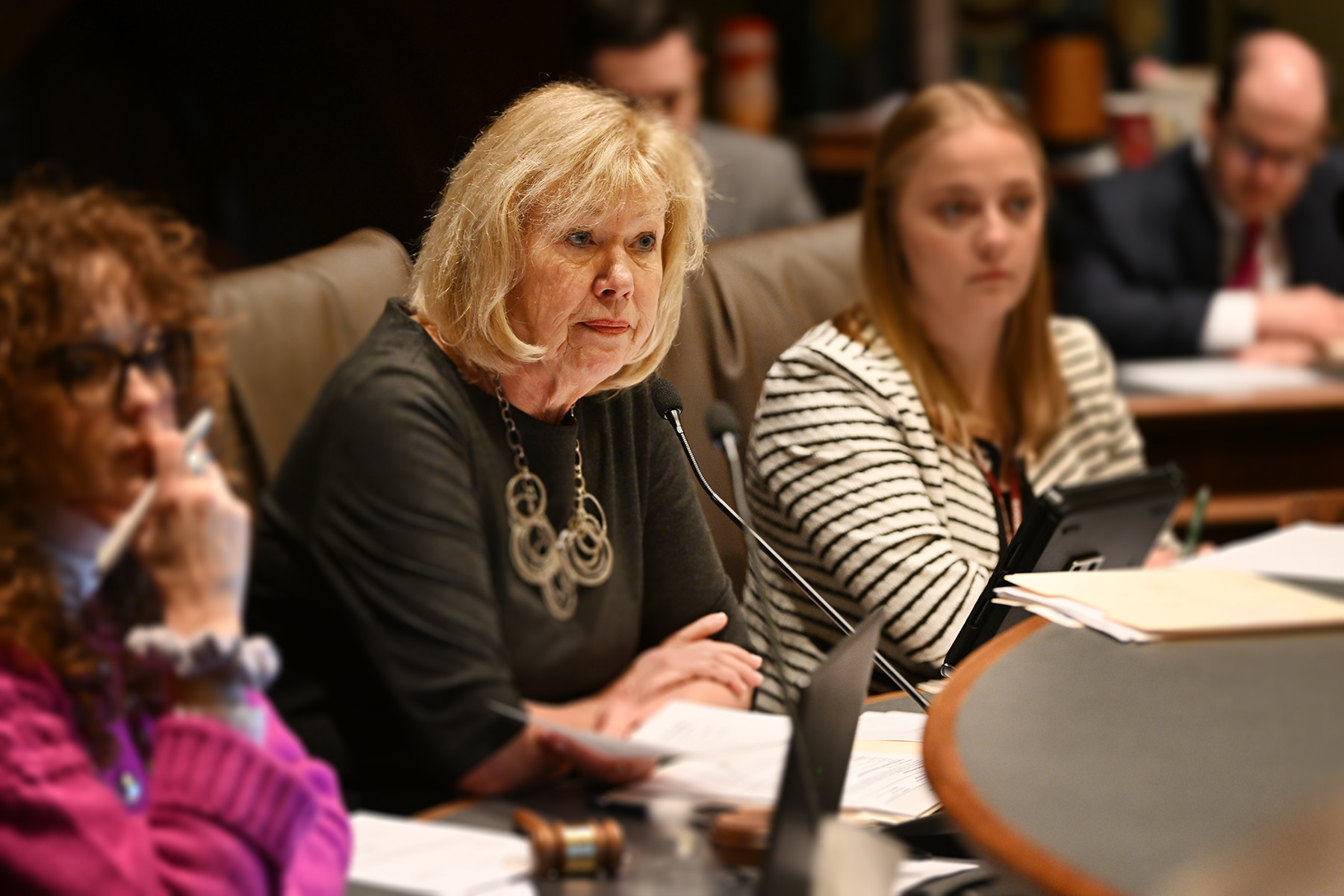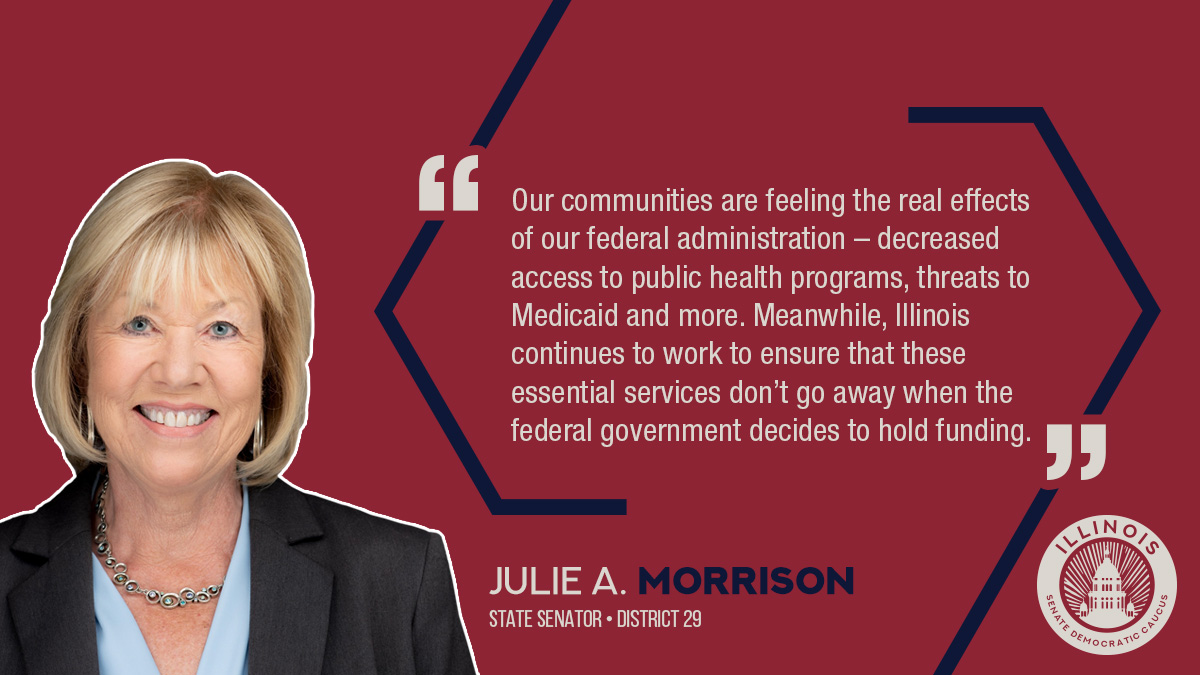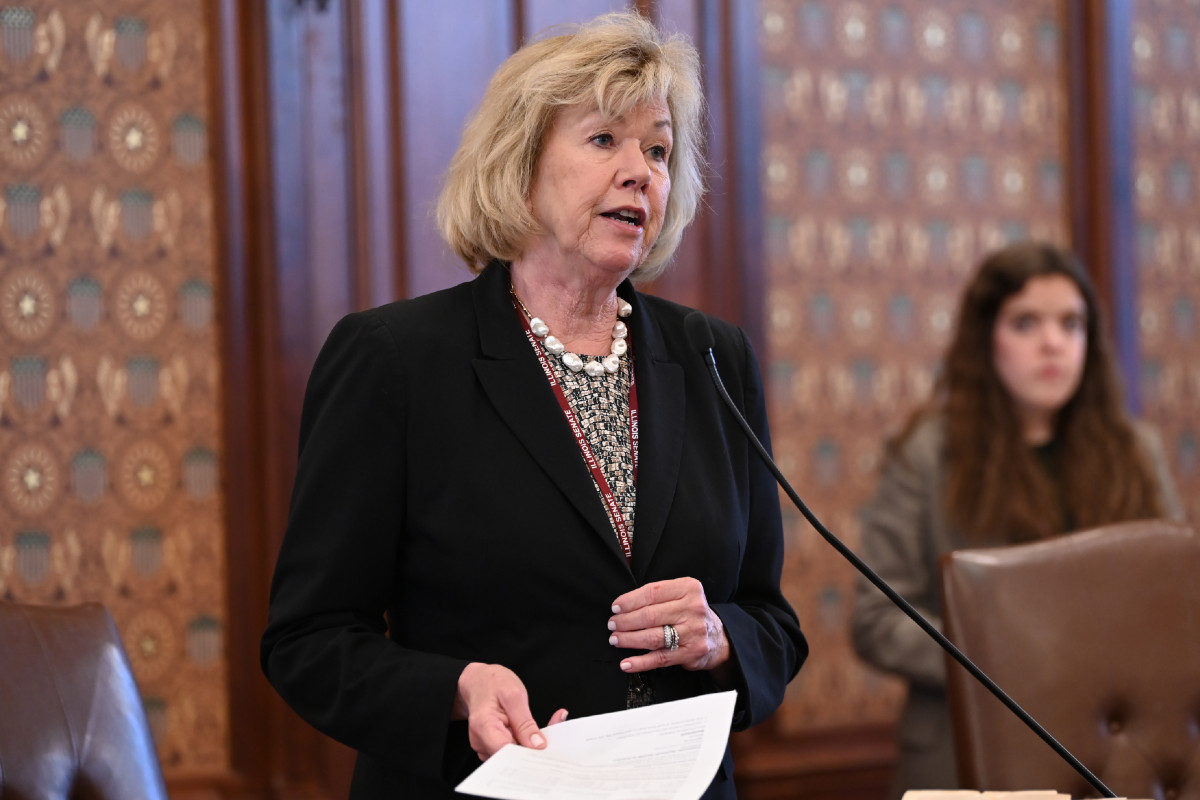Morrison measure to provide support and resources to Illinoisans affected by gambling disorders
- Details
- Category: Latest

SPRINGFIELD — State Senator Julie Morrison is leading the charge with a measure that would provide support and resources to Illinoisans affected by gambling disorders.
“Gambling disorders have long effected residents and families across Illinois – financially devastating lives and creating long-term mental health distress that greatly affects one’s quality of life,” said Morrison (D-Lake Forest). “By providing support and resources to those affected by gambling disorders, we are ensuring that our neighbors can continue to thrive in our communities and do not have to endure their battle alone.”
Morrison releases statement following FY27 budget proposal
- Details
- Category: Latest

SPRINGFILED — Following the governor’s budget proposal for Fiscal Year 2027, State Senator Julie Morrison (D-Lake Forest) released the following statement:
“The proposed budget prioritizes our caregivers and those with developmental disabilities,–while safeguarding essential programs that have been under attack by the Trump Administration.
Morrison announces $150,000 in state funding to promote small business growth
- Details
- Category: Latest

DEERFIELD — State Senator Julie Morrison announced that two $75,000 grants were awarded to innovative 29th District small businesses partnering with Northwestern University and Rosalind Franklin University.
“Our small businesses are the backbone of our community – ensuring opportunities and bolstering our economy,” said Morrison (D-Lake Forest). “By investing into future innovations created by local small businesses, we are uplifting economic development in our area.”
Morrison announces $1.8 million investment to local parks
- Details
- Category: Latest

DEERFIELD – Thanks to strong support from State Senator Julie Morrison, local parks received a combined total of $1.8 million from the Open Space Land Acquisition and Development grant to help continue ongoing improvements.
“An investment in our parks is an investment in our communities,” said Morrison (D-Lake Forest). “The 29th Senate District has some of the best parks in the state, and that is – in part – thanks to state funding we’ve brought to the area.”
OSLAD is a cost-sharing program between state and local governments that helps communities fund land acquisition and development for parks and outdoor recreation projects. It’s become one of the most popular grant programs in Illinois. Since its establishment, OSLAD has awarded $675 million for park projects throughout Illinois.
Northbrook Park District, Prospect Heights Park District and the City of Lake Forest each received a total of $600,000 for their respective projects. With the funding, Techny Prairie Park and Fields will be renovated, Country Gardens Park will see redevelopment, and South Park will see continued enhancements.
“Our team at the Park District is excited to see this major project move forward with the support of OSLAD funding. The renovation of Techny Prairie Park and Fields — a well-used asset that is nearing the end of its useful life — has strong community backing, developed through an extensive community engagement process,” said Northbrook Park District Executive Director Chris Leiner. “District leadership is grateful for the continued support of our local legislators who prioritize funding for park districts.”
More Articles …
Page 1 of 134





